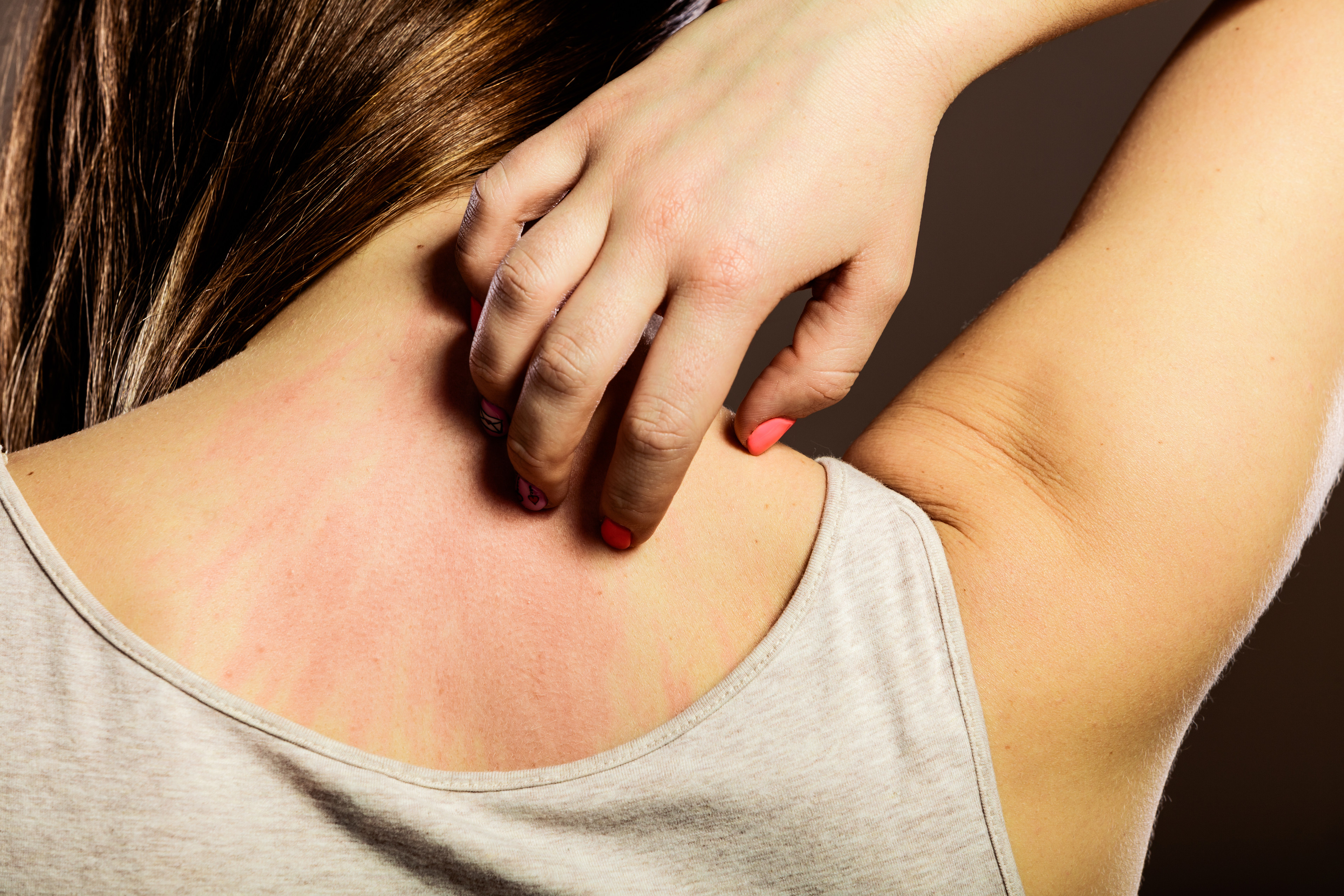
Being under the sun and in the great outdoors in summer can cause all sorts of problems for your skin. Here's a rundown on the most common summer skin irritations and how to treat them.
POISON IVY
Though many plants can cause an allergic reaction in the skin, poison ivy is one of the worst and the rash can stick around for up to three weeks. The length of time you have it depends on how much of the harmful chemical (known as urushiol) is absorbed. The severity of the illness can also depend on what skin type you have.
You might be tempted to try over-the-counter creams or antihistamines, such as Benadryl, but they usually don't have strong enough of an anti-allergy effect. Patients often need prescription medicines such as steroids to suppress the allergic response.
The most important thing to remember is: Don't scratch. Doing so can damage your skin and cause a skin infection. A doctor can help make sure that you're taking the right amount of medication to stop the infection in its tracks.
LYME RASH
Ticks are one of summertime's biggest hassles, and getting bitten can cause a rash that looks like a bull's eye. It usually appears days or weeks after being bitten and treatment is essential — without it, bacteria can spread to other areas of your body.
Even a painless or non-itchy rash should be evaluated for Lyme disease by a doctor. Keep in mind that if you have a blood test done for Lyme soon after you're bitten, it probably won't be accurate because as a new infection, it hasn't been registered by your immune cells.
If you see a rash when the tick is embedded on the skin, it's probably not Lyme disease but an allergic reaction to the tick. Still, a healthcare professional should evaluate to be sure.
Parents should also note that new guidelines show that children under the age of eight can now be treated with a prophylactic dose of doxycycline to treat tick bites.
SUNBURN
It doesn't take long to develop a sunburn, especially if your skin hasn't been exposed much to the sun.
Aloe and aspirin can help reduce the pain and minimize swelling, but you might want to see a doctor if you have blisters that cover a large part of your body, or if you have a fever or are in extreme pain.
Even if you're going to be out in the sun for a short amount of time, don't forget to apply sunscreen. Take even more precaution if you're on certain medications, as certain ones can make some people sensitive to getting a burn.
A FEW ADDITIONAL TIPS TO KEEP IN MIND ...
Wash your skin with soap and water: By doing this as soon as you can after you've come into contact with a plant like poison ivy, you can help stop the plant's chemicals from being absorbed into your skin.
Take a photo with your phone: As soon as you develop a rash, burn or any other ailment, snap a photo, especially before trying any at-home treatment. This will help clinicians identify the ailment because they can see the problem at its worst.
Keep your anti-itch creams in the refrigerator: They'll feel more soothing to your body if they're cool when applied to your skin.
If you or any of your friends have these summer skin irritations, be sure to stop by your nearest CityMD location to get proper treatment.
